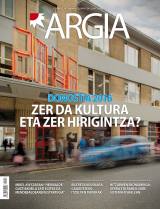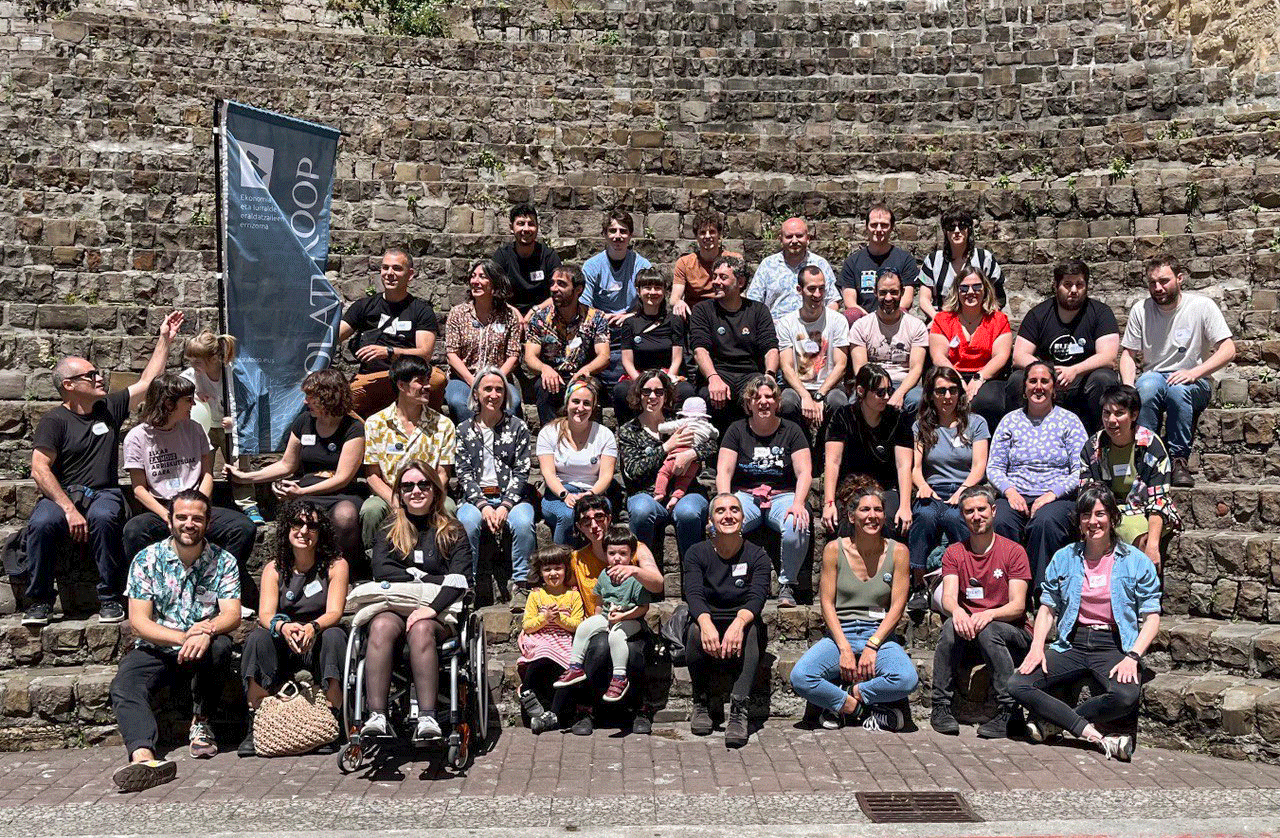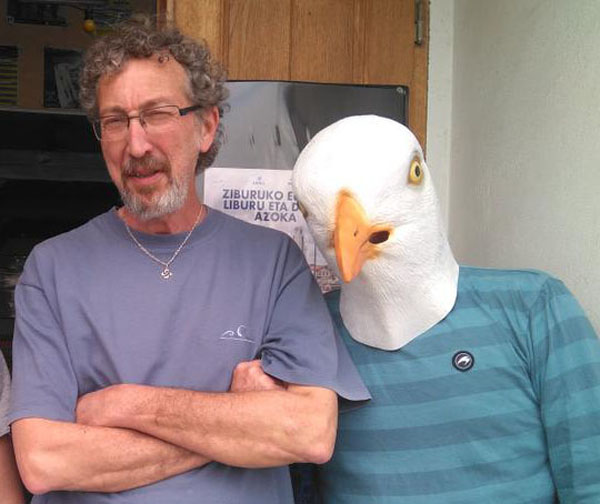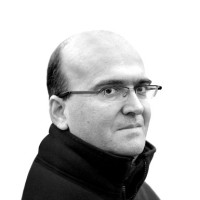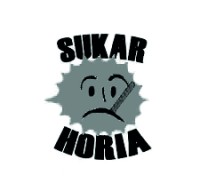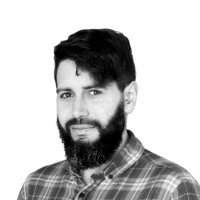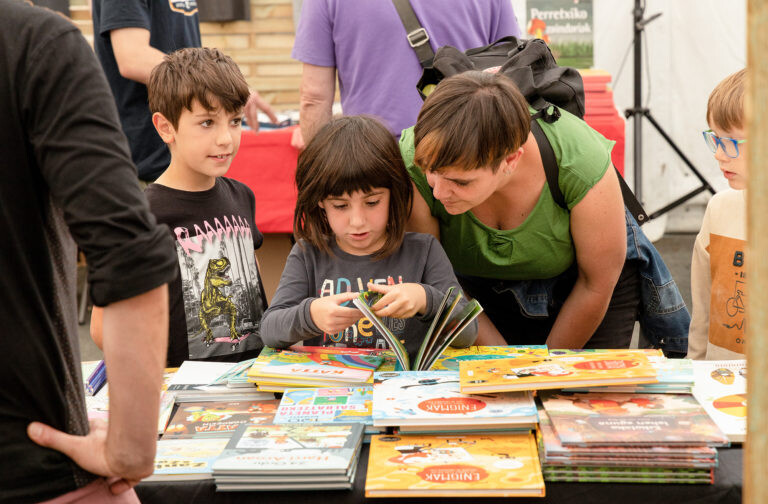Hidden human needs in conflict
- Mali, in north-west Africa, is a country poorly frequented by the media. Hardly to explain life or local misery, more often to reveal conflicts in recent years, such as the kidnapping at the Bamako hotel last year or the Tuareg revolt in 2012. Osalde is the only Basque institution operating in the Basque Country and has lived through all of them, although in its actions the lack of infrastructure has caused more than other events.
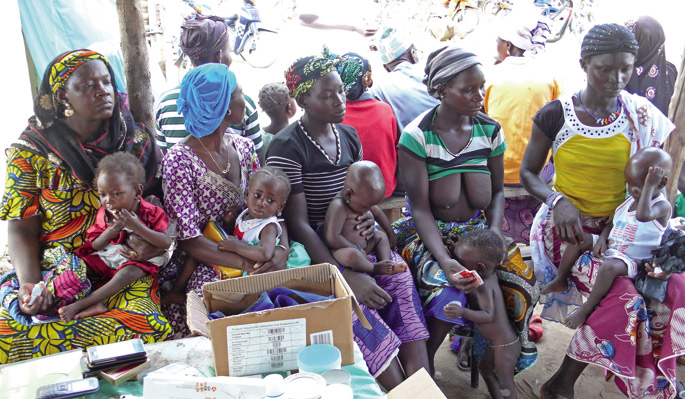
“A couple comes to the consultation with the sick child, says they have anemia and that they have to take him to a nearby town for a transfusion, and three hours later, when he leaves the consultation, he sees that they are still at the same time, they don’t know how to bring the child, crying. They do not have the means to take them and if they ask the family for money, they will condition their situation.” Maite López has often lived through these experiences within the health organization Osalde, which works in development cooperation.
The organisation has been in Mali for almost six years now. By then, health development projects were already working in South America, since since the foundation of the association its members recognized that health could not be an exclusive right of the Basques. They felt the need to travel to unfortunate countries, and Mali did: The Human Development Index developed by the United Nations Development Programme ranks last, in 2014, at the tenth. The infant mortality rate is very high: of every 1,000 live births, 120 die before the end of the year, and in rural areas the number is double.
Osalde established its headquarters in the poorest region of the country, Koulikoro, and the project takes place in a community of 34 small towns, reaching over 35,000 inhabitants. “It is very complex to achieve great purposes in the development of health without starting with the basic things, we must give the opportunity to people who are more serious and have less,” said the president of the association, Juan Luis Uria.
Infrastructure for improving health
Osalde has worked on several lines of work forced by the situation in Mali, although it has always had health as its starting point. In this area, its infrastructure has been improved and rebuilt: the creation of a health centre and a surgery unit and two maternity homes, and the reconstruction and expansion of a public centre. Dice López: “All the built centers had solar energy and light, they didn’t have light or light to give birth. There is also water and there is no water to wash your hands after being cared for by the first patient”.
In the last two years, Mali’s health system has been based on cost recovery, so everything has to be paid, with the health limitations that this entails. “If a child gets sick, the head of the family decides whether to take him to the doctor or not. Depending on your bond with the child, your situation at home, or the number of children, you will decide what to do, because you may have to leave the rest of the children without eating to take them to the doctor.” Nor is the policy of gratuitousness complied with: The Government should provide medicines free of charge in cases of malaria in children under five years of age, malaria in pregnant women and malnutrition in children under five years of age.
Osalde has also used its resources in the preparation of nurses, mid-level technicians and health workers when, after ten years, they leave Mali so that the work that has now begun is nothing.
Aware of the impact that lifestyle has on health, the organization has had to develop a line that was initially not related to sanitary development: the construction of drinking water wells, since many diseases were due to the lack of drinking water and food. Five years ago, 20% of the population had potable water and today 90% have the possibility to obtain it somewhere in the community.
Working with women
“The Muslim woman was not recognized in Malian society and that has been our third line of work,” Uria explained. At first they struggled to reach them, but after asking for their participation, they have worked on food security with women. For them to be left with land, they've talked to the village owner, the elder, and they've planted women's orchards, a two-acre vegetable garden area divided into six villages, and two mills for the little girl, a kind of native tree that's called this.
Osalde has explained to them the installation of irrigation systems and the way to sow and wrap, which are now managed by women’s associations in the area. In each of them more than one hundred and fifty women work and have a house to meet, store grain or gather tillage tools.
Progress has also been made in the literacy and empowerment of women. 370 women have been literate in Bananas: they have learned to read, write and basic mathematics. Prior to the arrival of Osalde there was already a group of literate women and a teacher from the National Language Institute of Bamako gave them the necessary training, so they went to Bamako (the capital) to be certified. To do so, they needed her husband's permission and only one remained in the house. All those who have left have taken the certificate of literacy in the Bavarian language and they themselves have been responsible for teaching the rest of the women. “Going alone to Bamako was a way to free themselves from social control for them, they still ask me when we will return,” said López.
In addition, two women ' s groups have been set up to work on leadership. “A hundred women come together to talk about their problems in the family, in society and in the community and their presence in society. Work has been done on women’s self-esteem and how to deal with problems.”
Times of conflict
Events in Mali in recent years have not paralysed Osalde’s projects. The toughest conflict occurred in 2012, when the Azawad National Liberation Movement (MNLA) and some Islamist groups that initially supported them proclaimed the independence of Northern Azawad and subjected the major cities of the area (Gao, Kidal and Tonbuktu) to a military coup in Bamako.
Then began the conflict between the Tuaregs and the Islamists, because the latter sought the lands that were in the hands of the Tuaregs to form an Islamist state. They were spreading south and foreign forces intervened, including the Economic Community of West African States and the French Army, who can read all these developments in the canal argia.eus/azawad..
López and Uria have made it clear that behind the intervention of France is the economic interest they had in the country. This is what López wrote in the newspaper of Osalde at that time: “As stated by the UN Food Rapporteur, Jean Ziegler, France’s aim is, among other things, to protect the interests of the French company Areva. This company is a world leader in nuclear power and exploits uranium from Mali and Niger.”
In this complicated situation, several NGOs, such as Doctors of the World or the Red Cross, working in the north, moved to Bamako, where the projects were delivered to the local population. Osalde, because of his situation, was able to continue working normally and Uria explained that, currently, Osalde is the only Basque institution in Mali. Since then, foreigners cannot go north, as the conflict is still alive and cannot be diverted. “We are in contact with the Malis associations here and we are repeatedly asked to take medicines and professionals to the hospitals of Gao and Tonbuktu, but it is impossible, there is war and military controls everywhere,” said Uria.
They know that the situation there is not stable, but at the moment it is sufficient for volunteers to take some steps to ensure safety, such as not moving too much, not using public transport, being accompanied at all times and approaching Bamako as little as possible. Following last year’s kidnapping at the Radisson Hotel in the Biscay capital, the Basque organisation planned to send two volunteers to Bilbao.
Migration as a solution and problem
The war has left over 250,000 displaced people in Mali and their living conditions allow them no other way out than to emigrate. That is the concern of the European authorities, as Uria pointed out: "For France, the G8 and for Europe in general, Mali would not have been a problem had it not been for migration and economic interests. Europe is not interested in instability close to its borders, as armed conflicts and political instability mean that people move to neighbouring lands. The instability promoted by the major powers to control raw materials does not go well for Europe, it cannot be any more.”
That is why the President of the Association considers it very important that Europe and the other countries review their social policies and properly distribute the money for international development. It has also appealed to the Basque institutions: “We are surprised that in the aid of the Provincial Council of Bizkaia and the Basque Government Latin America has a large percentage of projects, which are the most empowered and economic growth they have in recent years. Meanwhile, despite the planned increase in aid to Africa, no work is being done on it.”
Faced with hunger, displacement and the crisis of opportunities, Osalde is studying turning development projects into humanitarian aid projects, shorter but more intensive programmes in health and food.
Automatizazioaren eta abereen inguruan kuxkuxeatzen ari nintzela, ukuilu automatizatuen informazioa hasi naiz eskuratzen. Nire idazmahaiaren erosotasunetik idazten, gizakion kontsumorako modu masiboan esplotatzen ditugun abereen bizitzak nahiko penagarriak direla iruditzen zait,... [+]
It seems possible to measure happiness. There are even those who insist on it. The UN is not very successful in maintaining world peace, but it shows in an annual report how such a quality is distributed across the planet. It is basically a list, staggered from country to... [+]
On Sunday, May 11, we have an appointment in the Plaza del Rekalde (Bilbao) to announce that all the people who live in Basque cities and towns have a census. This action is part of a broad campaign that promotes that no one living in our municipalities is without a census. In... [+]
Duela urtebete eskas Espainiako aireportuen sarea kudeatzen duen AENA enpresa publikoak iragarri zuen Loiuko aireportuko terminala handitu nahi duela. 2024an 7 milioi bidaiariren langatik gertu gelditu zen eta, handitzeak aurrera eginez gero, 2030. urtetik aurrera 13-14 milioi... [+]
Zenbait urtetatik hona sarri entzuten dugun kontzeptua da zaurgarritasuna. Gaur gaurkoz, diskurtso politikoetan pertsona zaurgarriez aritzea ohikoa da. Seguru nago nik ere inoiz erabili dudala berba hori Bizilan.eus webgunean, eskubide laboralak eta prestazio sozialak azaltzeko... [+]
Rearm Europe. Reindustrialize to defend Europe. This is the agenda that the political leaders of the European Union have been trying to promote lately, through the White Paper on European Defence, the BirArm Europe and the 2030 Availability plans. The excuses for the promotion... [+]
Klima aldaketaren eraginez, munduko lurralde gero eta gehiago idortzen ari dira, milioika pertsonaren jarduera eta bizimoduak kolokan ezarririk. Fenomeno horren frontean dago India erdialdeko Maharashtra estatua, non klimaren berotzeari eta lehortzeari metatu zaizkien oihan... [+]









